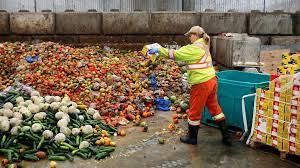
Covid
A remarkably silly comment piece (the piece and the comments) in the Guardian demonstrates a lack of appreciation of number. India is having a big problem, according to the media, with covid cases. As I've shown on the covid page for now (339), when we look at per capita figures the Indian position is as nothing compared to several countries in Europe. I'm not denying that they're swamped; I'm not saying this isn't awful; I'm saying that we've had as bad already and worse in total. So the reason for inclusion in the media is not the numbers, it is something else, like not coping, powerful visual images, local concentrations of cases. So it's not India as a whole it's localised bits of India and we need to be told the equivalent of either England-sized areas on localities as tight as Corby and Knowsley. Among the comments made often is that India is a source of vaccine. Consequently there is comment that we should not be pursuing deliveries and that we should be declining jabs so that they're used instead in India; I'm sorry, but both of these are pretty silly statements. India has 1391 million people, the UK has 67 million, 5% of that larger figure. Cases per million, UK is five times greater; in deaths per million, the UK is 13 times higher; in vaccinations delivered, India is on about 9% and the UK on 50% – but that means that the UK has used about 34 million doses and that India has used 125 million, so it is not as if India isn't generating enough vaccine nor that it has insufficient capacity. What is the matter is that, as ever, it is the localised situation that is the disaster and that some system are overwhelmed. What we need to see is the Indian figures reduced to geographic areas of more similar numbers; even a 100 million would be a better unit for comparison. Wikipedia. It isn't as if India has not known that they had a problem either. In some senses, they reacted very well in 2020 and that very success has caused them to take a lot less notice with subsequent warnings, treating the oracle as Cassandra. Mass political meetings and religious festivals (simply large meetings) are a very good way of allowing the virus to multiply, though explode is more apt as a descriptive.
_____________________

Another part of the same article, for reasons I do not claim to fathom, pointed to the mass of food waste in this country, some 4.5 million tonnes per year. I have explored the further in this separated page, Food Waste

_____________________
I came across a belief that dinosaurs are the content of fossil fuels.
Oh dear. separate page. Image from here.
https://www.thoughtco.com/does-oil-come-from-dinosaurs-1092003
_____________________
That previous entry causes me to wonder what other common thinking failures occur. I found some interesting failures of cognitive behaviour and that led rapidly to the same sort of list as I studied in essay 329 on logical fallacies. Looking to see if there is a study of the most common I found lists of 6, 8,10, 12 and 15. None of these are supported by evidenced research and I will continue to hope to find some.
Personally, I find the labels for these failures simply too much to remember. They would be useful if we had all had the same lessons such that identifying the fault caused the proponent to stop and self-correct. As it is, the terms are so rarely known (and even identified correctly) that any argument in which someone says 'that's ad hominem" for example, doesn't advance any facet of the discussion and guarantees a move instead toward argument – with emotion taking over and sensible logical thinking with discussion of what evidence stands up to scrutiny all lost. I see this as largely a pointless activity. If we could agree what the information is, then we can pose better questions and, if we can find answers, emotive argument soon disappears. Of course, we are all then scuppered by personal wants, wanting a particular result; but that falls into categories of deception, including self-deception. Again, largely wasted activity from a societal viewpoint.
_____________________
Climate change: cities will be hit hardest. Surely this is a good thing? These are the people most likely for their action to have an effect, they are a bigger group than the non-city people and they also have the biggest effect on change of policy — or acceptance of change. I have observed for decades that London has its own weather and is typically a couple of degrees warmer than the neighbouring countryside — though the perceived difference by me was always greater than that. I've commented elsewhere that rising sea levels hits cities hard simple because we do tend to build on the shore line (and more so when there's a beach or an estuary). Having read the linked article, I add Tianjin to my list of places at risk [think of Tianjin as the industrial centre on the bit of coast nearest to Beijing, though this is 120km away].
____________________
Purposes of emotions
Three parts: subjective(how you experience the emotion); physiological how your bodies react to the emotion); expressive (how you behave in response to the emotion). link 1.
Three functions: adaptive, preparing the body for action; social, which amounts to body language; and motivational, which has a feedback loop between emotion and motivation. Source 2.
Two components: physical arousal and cognitive label source 3
1 https://www.verywellmind.com/the-purpose-of-emotions-2795181
2 https://exploringyourmind.com/know-functions-of-emotions/
3 https://www.verywellmind.com/the-two-factor-theory-of-emotion-2795718
4 https://www.huffpost.com/entry/finding-your-authentic-pu_b_8342280
5 https://timyen.com/timyen-blog/2019/10/1/what-is-the-purpose-of-emotions-feelings-decoded
6 https://nobaproject.com/modules/functions-of-emotions
7 https://www.lifehack.org/articles/communication/how-control-your-emotions-effectively.html
Most of the time, simply the way you are thinking about the situation is causing you to feel the way you do. Another huge reason why we feel negative emotions is because our values are not present in that moment or being respected. 7 I relate to this second one, negative reaction to one's values being dissed. Once you have discovered why, [..] you might need to change the way you are thinking about the situation. If you start thinking of other possible ways of looking at the situation, you will begin to feel better immediately. [...] Understanding always leads to calming. You can choose how you want to react, but it takes practice; I don't believe this, yet.
Related essay next, 342 - Fewer Cows
____________________
George Monbiot, with whom I often disagree and whose opinions I occasionally find extreme, has posted 20210427 something with which I agree strongly, to the effect that the media is letting us down over government sleaze. For want of a better and more accurate term, at least.
I won't repeat what George has written because it is linked, but there are several points that can be expanded, so I will point to them so you can track these down. One, the BBC is running scared and this is a loss to us all, government included. George has an earlier piece that is relevant. I recently read a different piece pointing to curious connections between BoJo and Jennifer Arcuri, thinking this could be far longer and more detailed without requiring opinion, just precise content. Here's an example, showing that the press has not been missing this case, but that the situation has not changed or improved, nor has it become transparent nor seen to be above-board. In short, this stinks.
The issue about NHS supply (read chapter 4) shows the extent to which we need transparency of process. The extant cronyism and the recent sharing that this served to slow procurement down not speed it up—by in effect clogging up the system that was already in place—serves to show that politicians themselves need to serve their own processes with a good deal more care and precision. The Good Law Project and openDemocracy (or here) are filling a role but as I see it the media should be pointing to work such as theirs and expanding upon it, though I don't think they're even repeating it enough. No, it isn't the role of the media to call the government to account, though I support them when they do this; it is the role of the opposition to do that but all that we see at the moment is that a large majority provides a shield of impunity such that it is the role of the press to do the calling to account. Another related piece points to conflicts when the judiciary is used to supply checks and balances. You could re-read 284 - ProRogue.
Of course, what is also wrong is that the system is faulty, flawed and failing. I have long thought that it is wrong that an MP is allowed to hold other employment. I am uncertain whether it would be appropriate for any MP to direct that offered reward (bribe, payment, I don't care) be given to the party not the person without there being a remarkably strong system of recording what occurs. I think I want all politicians to be separated from favour and so to be seen as the public servants they purport to be. Instead, what we appear to have is noses in the trough and that serving the trough is rewarding to all concerned. Hence the self-evident oxymoron, the 'business vote'. Perhaps the vote occurs in the House, having been bought by business interests. All of this demonstrates that our political system fails to do what it is supposed to do.
DJS 20210429
MPs and second jobs: Parliament FullFact OpenDemocracy. I think £82k is quite enough, including paying a family member to assist out of that. I'm not even sure that non-travel expenses shouldn't come out of that too. 650 MPs made an extra £5M in 2020, apparently. That's the best part of £8k each and if they were limited to a 10% gain, that could be made acceptable; but when some earn multiples of the MP salary, this is too close to graft for my taste. Might there be a difference between Theresa May being paid (lots) to speak in public and Sajid Javid accepting a (large) consultancy fee (which implies he did something to earn it). If there is a difference, it is to do with an offence being when action looks like preferential treatment such as cronyism or even worse, selling parliamentary votes.
____________________
"Conflict is the consequence of unmet needs" is a quote from an email from the darling daughter. In turn she was quoting a seminar on, of all unlikely things, corporate management.
_________________
Good line from Jonathan Pie: "I just hope the bus that Dominic Cummings has thrown Boris under has a promise of £350M a week for the NHS written on its side" Cash for Cushions
_________________
Gaby Hinchcliffe, with whom I disagree more often than I do with George Monbiot, came up with what reads like a good suggestion, that the lowest hanging fruit on the climate change tree is to change your diet a little, like eating meat (even) less often. Or maybe just red meat less often. Another valid point, that since hybrid vehicles and EVs don't pay fuel tax, how should they pay for their share of road maintenance? Side issue here, that one cannot expect all columnists to reach their preferred standard all the time. Oh, yes we can; that's what the editor is for and leaving a crap article to be published implies several other relatable stories (take that as a possibility to explore; I chose revenge).
..and paraphrased from the comments: "Who wants change?" Many hands go up. "Who wants to change?" No hands shown. Which kind of implies that we're happy about change as long as someone else does it. I suggest that the reverse should be the case; that if change ought to occur, then it is those having that thought who should demonstrate that they follow their own thinking. It could be called setting an example, but it might also permit discovery of what is good or bad about the change, such as inconvenience, attached cost and consequences. In the case of less meat, is more farting a consequence? To such a list I might add solar panels ands smart meters, about which I have written.
Ever wondered about the acreage required for a tonne of meat compared with a vegetable crop? Would you believe an acre is what you need for a cow? Properly, one livestock unit and not all land is equal, of course. Might it be five sheep equivalent to one cow (livestock unit)? Detail. Wikipedia. It varies; in the UK perhaps 12 sheep to the cow, 5 pigs to the cow and perhaps 100 chickens. It would be smarter to measure animals against a particular piece of land and to allow for wintering.
This became a complete page devoted to a reduction in red meat consumption, next.
________________
A May snippet: I found a reference that actually attempts to count the number of runners in the UK and comes up with a figure as large as 10% of the population, some 7 million. Source. Approximately 6.8 million people in England went running at least twice within 28 days. Running at any intensity and any duration was considered in the survey. Other than jogging or sprinting, there are different running styles. For example, the same study found that 280,600 people participated in fell running and 93,600 people took part in parkour or free running. Running is the most popular sport in England, followed by fitness class. So when I next get asked what 'good' is as a runner, I can refer to everyone already being in the top 10% just for setting off. The same source has data on the distance we walk and parkour, but you soon hit a paywall, which is why I have no link for that last.